Vietnam: What are the sample social argumentative essays on the opinion that admiring Idols is a cultural beauty, but idol obsession is a disaster? What are the types of argumentative writing in the 12th-grade Literature curriculum?
What are the sample social argumentative essays on the opinion that admiring Idols is a cultural beauty, but idol obsession is a disaster?
Students may refer to the following sample social argumentative essays on the opinion that admiring Idols is a cultural beauty, but idol obsession is a disaster:
Sample 1: Admiring Idols is a Cultural Beauty
An idol is a concept that is no longer unfamiliar in modern life, especially in the entertainment world. Admiring an idol is the celebration of individuals with exceptional talent and virtue who make positive impacts on the community. Idol admiration can be considered a cultural beauty, providing motivation and inspiration for individuals in life. Idols serve as shining examples for fans to follow, learn from, and develop themselves.
Firstly, admiring idols helps fans have clear goals and ideals in life. We all know that in life, we sometimes feel lost and lack motivation. However, having an idol to admire provides a powerful source of motivation. Idols are not only talented individuals but also those with ethics and positive actions and thoughts. Famous athletes, for instance, are not only proficient in sports but also serve as models of perseverance and tenacity, such as Nguyen Thi Anh Vien or Le Quang Liem. Stories of their lives and careers help fans, especially the younger generation, realize that success does not come easily but through a continuous process of learning, dedication, and practice.
Additionally, idol admiration contributes to building good values in society. Idols with significant influence on the public, such as artists, writers, or scientists, can inspire strongly. They represent not only talent but also virtue. Artistic works, songs, or films created by idols can help fans understand deeper meanings of love, compassion, respect, and sharing. Having a positive idol allows fans to access valuable cultural values, thereby improving themselves and contributing to a civilized society.
Admiring idols is a cultural beauty, especially in the modern world where society always needs ideal models. However, admiration only remains beautiful when it is carried out healthily and thoughtfully. Idol admiration does not mean losing one’s personal identity or critical thinking; it means learning from the good brought by idols. It serves as a motivation for each individual to develop and perfect themselves.
Sample 2: Idol Obsession is a Disaster
Although idol admiration can bring positive values, when admiration turns into obsession, it becomes a disaster. Idol obsession not only blurs people's ability to judge right from wrong but also causes negative impacts on themselves and the community. Idols can be bright examples, but without a clear perspective, fans might fall into a blind state, willing to accept wrongful actions and thoughts from their idols.
A clear example of idol obsession is the phenomenon of "excessive fandom" among the youth. Many are willing to do anything to become like their idol, from dressing, makeup to mimicking actions and speech. Particularly, in some cases, this obsession leads to extreme actions such as relentless pursuit and blind admiration without considering the consequences. Extreme fans might lose their personal identities, leading artificial lives, and losing their inherent confidence. This not only harms their psychology but also makes them fall easily into inappropriate behaviors and even illegal activities just to prove their love for their idols.
Moreover, idol obsession increases skewed values in society. Idols are not always perfect and respectable; they can have mistakes, weaknesses, and shortcomings in their behavior. However, when fans fail to recognize this and always perceive idols as "blameless," they unknowingly support the idol's negative actions. Some cases reveal idols involved in misconduct, deceiving fans, living an unethical luxurious lifestyle, or legal violations. If people cannot discern right from wrong, they easily fall victim to such actions.
Idol obsession is not only a personal issue but also a disaster for the community. It weakens fans' ability to perceive, causing them to lose their ability to distinguish between right and wrong. When their idol no longer maintains a good image, fans may fall into disappointment, leading to negative behaviors. This can result in adverse consequences not only for individuals but also for society at large.
In conclusion, admiring idols is a normal and necessary aspect to promote personal development. However, when admiration turns into obsession, it creates negative impacts on fans and the community. Hence, maintaining a sober and wise attitude in idol admiration is crucial to avoid falling into the disaster of blindness.
*Note: Information is for reference only./.
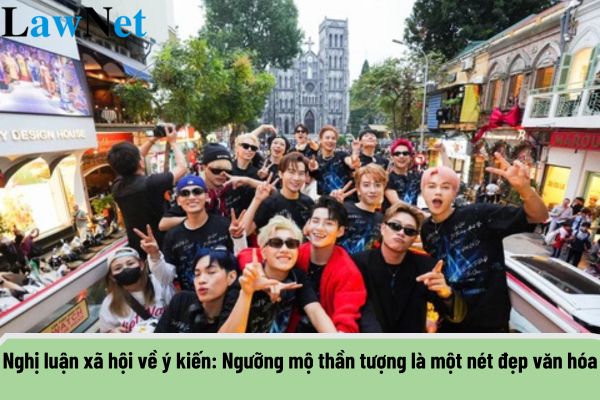
What are the sample social argumentative essays on the opinion that admiring Idols is a cultural beauty, but idol obsession is a disaster? What are the types of argumentative writing in the 12th-grade Literature curriculum? (Image from the Internet)
What learning outcomes are required for reading comprehension of argumentative texts by 12th-grade students in Vietnam?
Under Section 5 of the General Education Program in the Literature subject issued with Circular 32/2018/TT-BGDDT, the learning outcomes required for reading comprehension of argumentative texts by 12th-grade students in Vietnam include:
- Reading comprehension of Content
+ Identifying and analyzing the content of the thesis, arguments, reasoning, and unique evidence in the text; pointing out their interrelationships; assessing the compatibility between the argumentative content and the text’s title.
+ Knowing how to receive and evaluate content with critical thinking; identifying the purpose.
- Reading comprehension of Form
+ Analyzing and evaluating how the author uses some argumentative operations (such as proving, explaining, commenting, comparing, analyzing, or refuting) in the text to achieve their purpose.
+ Analyzing rhetorical measures, expressions, affirmations, and negations in argumentative texts and evaluating the effectiveness of these forms.
+ Recognizing and analyzing the role of argumentation and expressive language in argumentative texts.
What are the types of argumentative writing in the 12th-grade Literature curriculum in Vietnam?
Under the General Education Program in Literature promulgated with Circular 32/2018/TT-BGDDT, specific regulations on types of argumentative writing are as follows:
- Social argumentation
- Literary argumentation

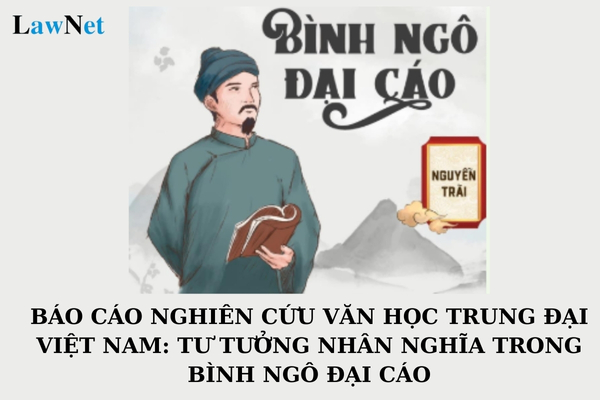
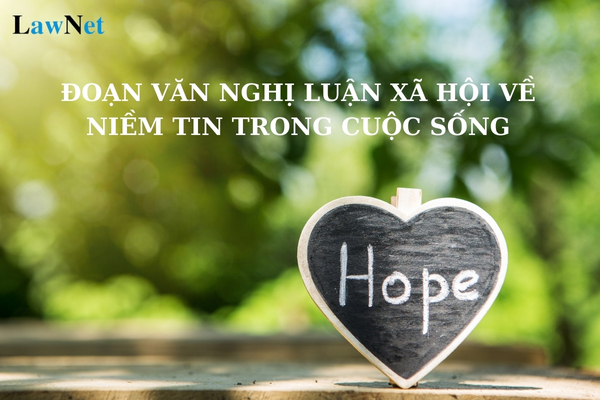
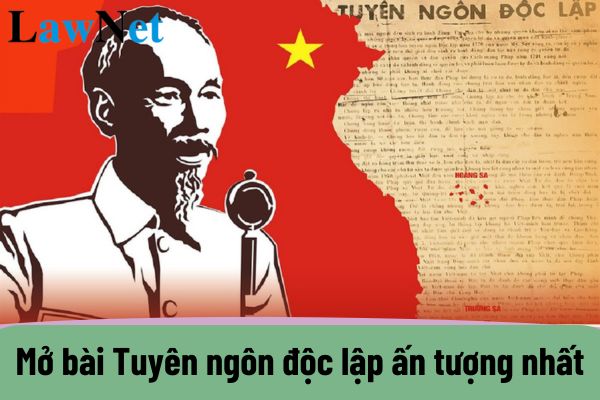
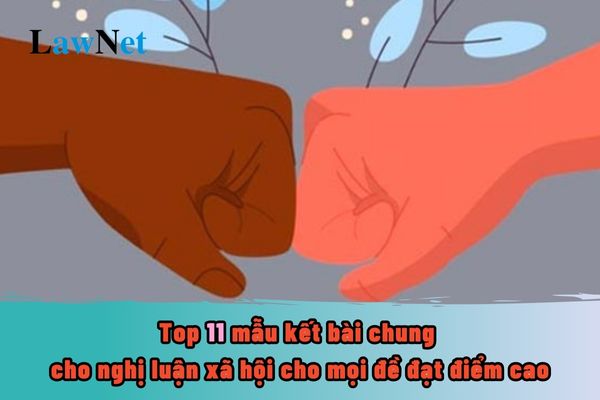
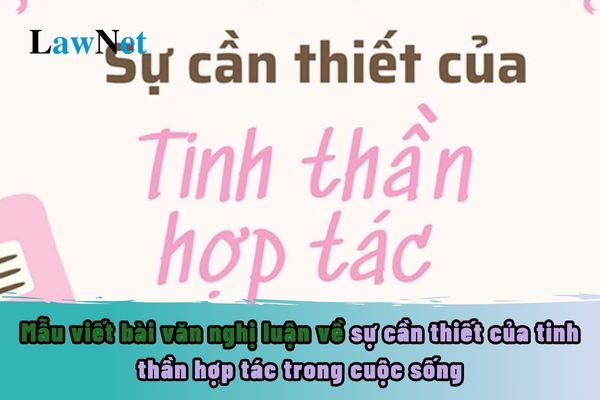



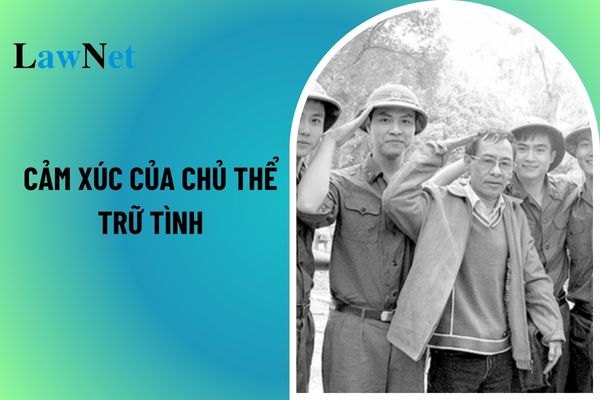
- What are the answers to the online contest "Propaganda on Administrative Reform in Hai Duong Province" in 2024?
- What does an adjective mean? What is the role of adjectives in Vietnamese language? What is the grade whose Vietnamese language curriculum covers features of adjectives?
- What is the arithmetic sequence formula? What is the grade whose Mathematics curriculum covers arithmetic sequence in Vietnam?
- What do verb and verb phrase mean? What is the grade at which verbs are taught in the Vietnamese language curriculum?
- Vietnam: What are the Top 10 opening greetings for presentations by students? What are the regulations on speaking and listening teaching in Literature?
- What are the guidelines for preparing the lesson "Cổng trường mở ra"? What are the responsibilities of subject teachers in assessing students in Vietnam?
- Vietnam: What are the sample introductions for essays on the work "Hồn Trương Ba Da Hàng Thịt"? What genre does the work "Hồn Trương Ba Da Hàng Thịt" belong to?
- What are guidelines for analysis of the reasonable use of mineral resources in Vietnam? What are regulations on online teaching materials in Vietnam?
- What are the guidelines for writing an introduction for a literary argumentative essay for excellent students? What are the general objectives of Literature curricula in Vietnam?
- What are prohibited items in the exam room of the 2025 High School Graduation Exam in Vietnam?

